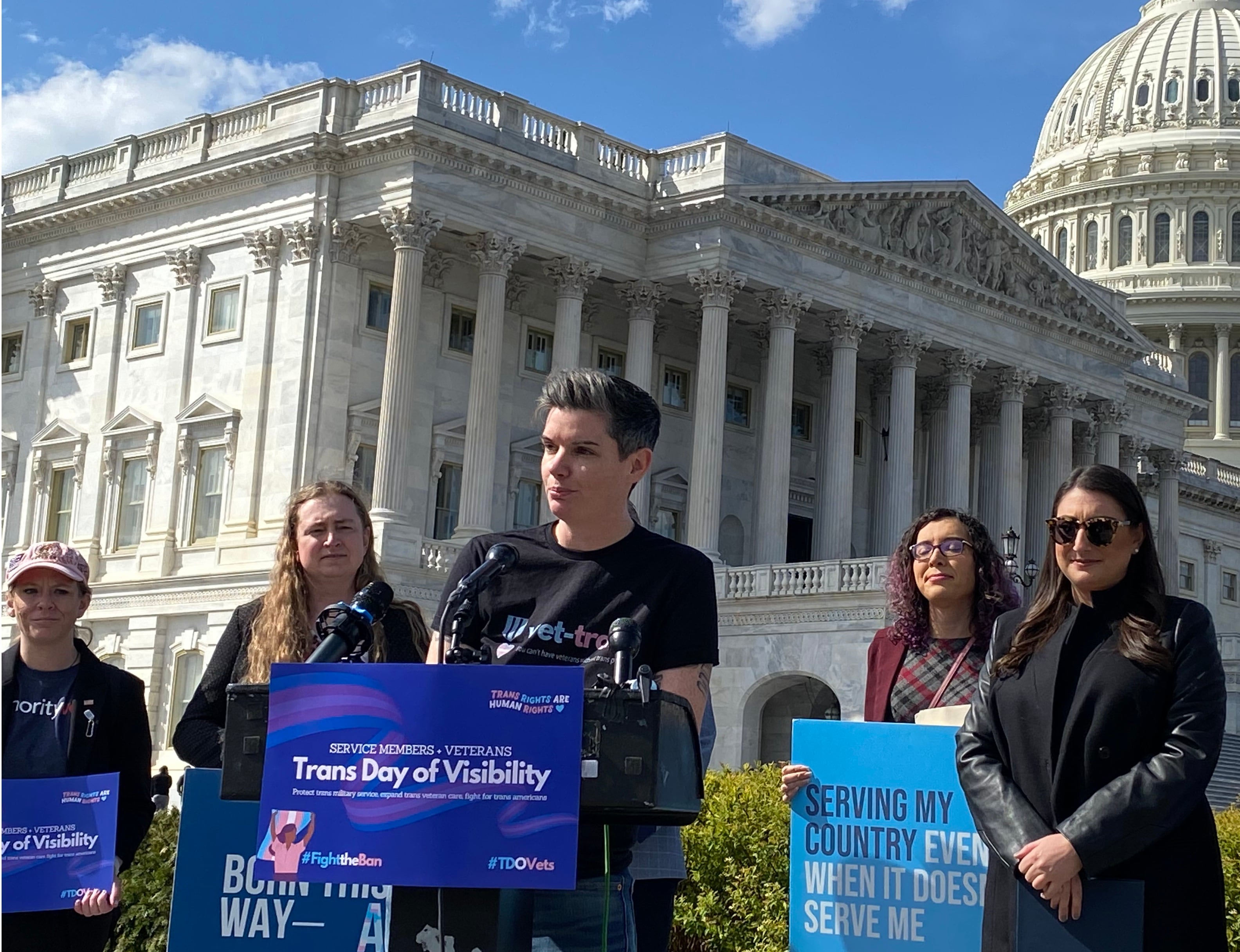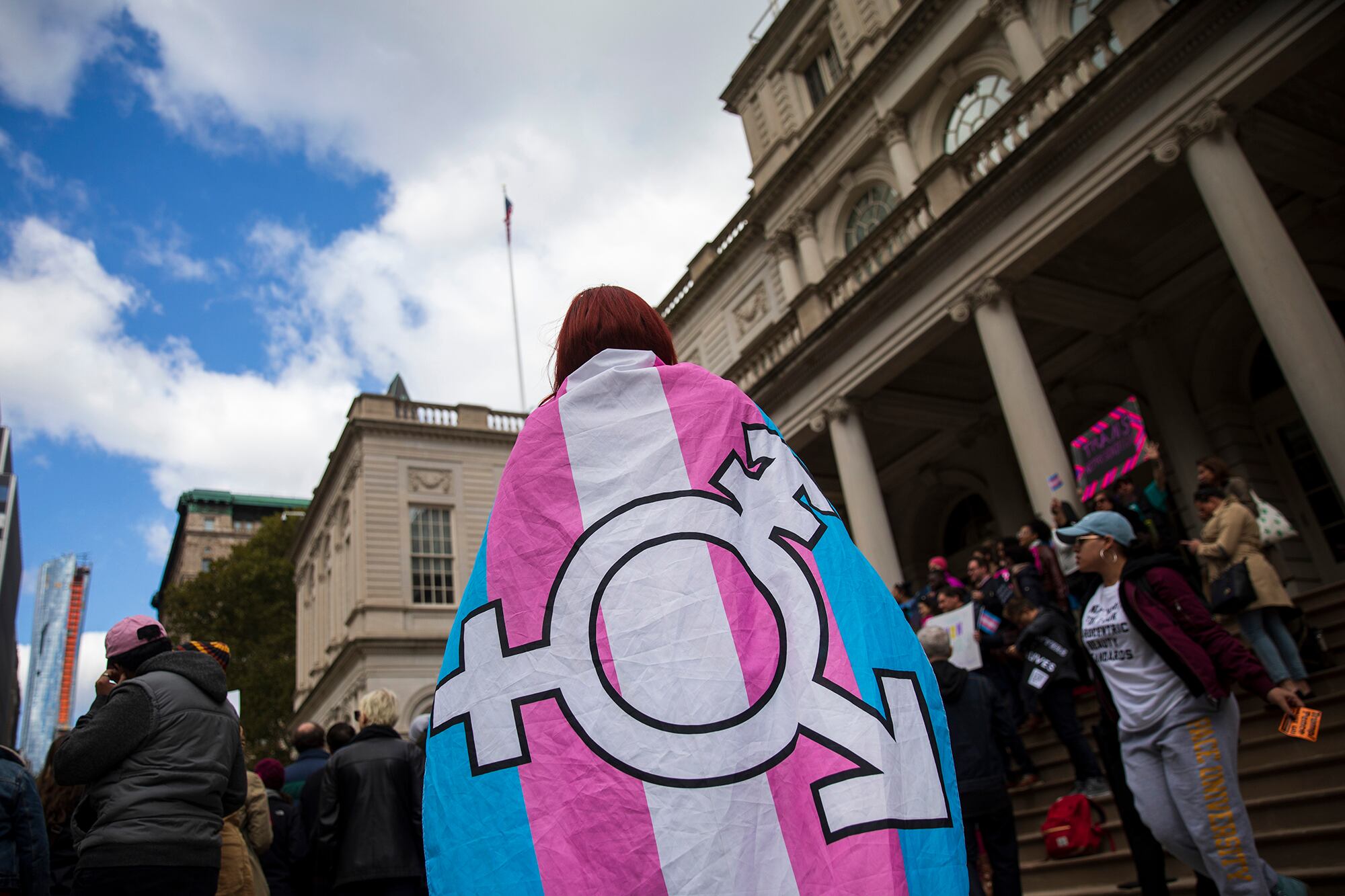Advocates for transgender veterans are asking a federal court to force the Department of Veterans Affairs to move ahead with plans to provide gender confirmation surgery and other support services after years of inaction, according to a lawsuit filed Thursday.
The action from the Transgender American Veterans Association and Yale Law School’s Veterans Legal Services Clinic comes two months after the groups threatened legal action against the department and three years since President Joe Biden repealed the ban on transgender individuals serving in the military.
Advocates say despite promises from VA leadership, the department has not made any meaningful steps towards providing the critical surgeries to interested veterans.
In July 2021, VA Secretary Denis McDonough announced that the department would begin offering the procedures, also known as gender reassignment surgeries, at some department medical centers, part of a larger effort to make VA “more welcoming” to all veterans. But in the 30 months since, no surgeries have been performed, and the issue remains stalled in the rulemaking process.
RELATED

TAVA submitted a petition on the issue to department officials in May 2016, arguing the services are needed for the health and well-being of transgender veterans. Thursday’s legal filing argues that VA needs to respond to that petition within 30 days.
“Transgender veterans deserve the gender-confirmation surgery that VA has promised. At the very least, VA has a legal duty to TAVA and its members to grant or deny their rulemaking petition,” the advocates wrote in their message to the court. “Transgender veterans should not have to wait any longer.”
In the past, VA officials have estimated that as many as 4,000 veterans nationwide would be interested in the procedures, also known as gender reassignment surgeries. The department does offer other support for transgender veterans, but those services have come under criticism from conservative lawmakers in recent months.
Transgender veterans can pay for the surgeries on their own through private hospitals, but the procedures can be expensive. And advocates argue that move puts critical medical care for veterans outside their normal health coverage, causing complications with future health coordination among physicians.
Rebekka Eshler, president of TAVA, said her group did receive a response from VA leaders to their November threat of legal action, but it contained no new timelines or promises of action.
“It was basically the same language they’ve been using for the past three years,” she said. “Yes, the VA supports transgender surgeries and the things that are necessary to support transgender veterans. But at this time, they’re still reviewing the rule.”
In an interview with Military Times in November, McDonough acknowledged the delay but said he was not yet ready to move ahead with the surgeries.
“As the person who called for this and as the person who will be defending the policy when we do it, when I’m ready to move ahead, I’ll do it,” he said. “This is an important suite of care for vets.”
Eshler said the long delay has caused distrust not only among her group’s membership but also within the veteran community.
“These guys made a promise,” she said. “Did they keep their word? This is a way for VA to show all veterans that, yes, they are giving all veterans the care they deserve.”
The National Center for Transgender Equality has estimated that there are more than 134,000 transgender veterans in America today, and another 15,000 transgender individuals serving in the armed forces.
Leo covers Congress, Veterans Affairs and the White House for Military Times. He has covered Washington, D.C. since 2004, focusing on military personnel and veterans policies. His work has earned numerous honors, including a 2009 Polk award, a 2010 National Headliner Award, the IAVA Leadership in Journalism award and the VFW News Media award.




